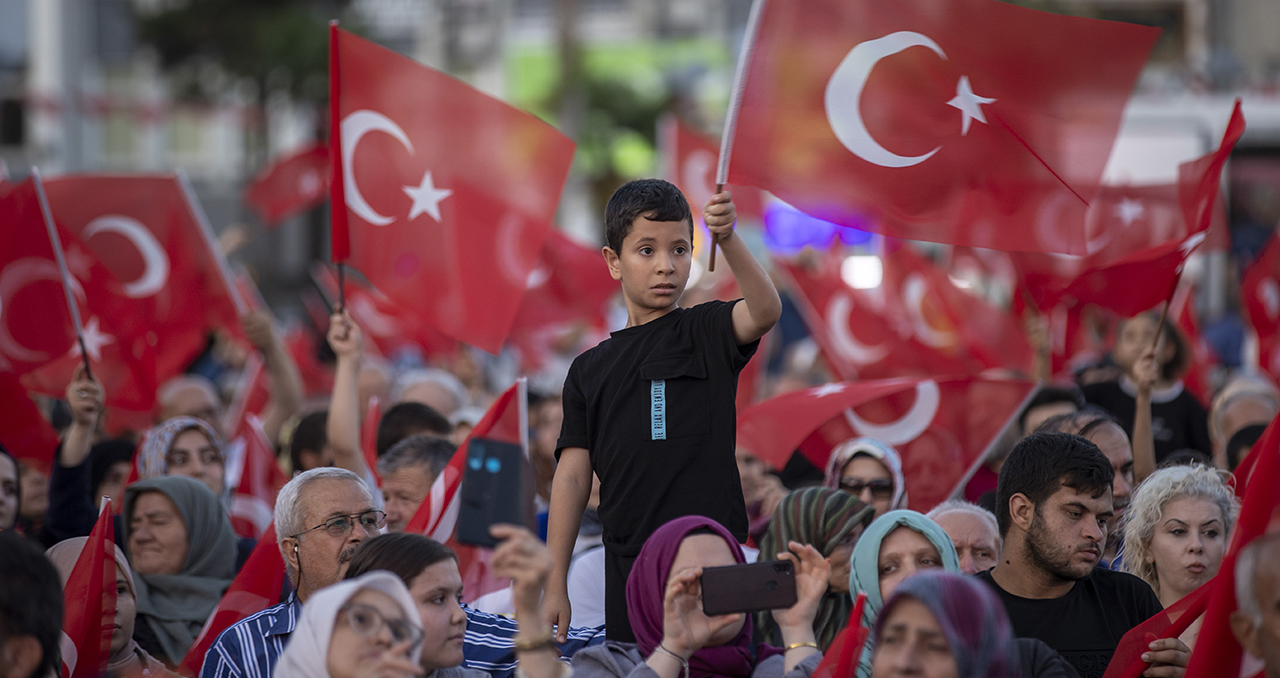The revamped Southeastern Anatolia Project (GAP) was launched by Prime Minister Recep Tayyip Erdoğan in Diyarbakır last week in the company of 12 of his ministers, 75 deputies and an army of bureaucrats. In the biggest sports stadium in Diyarbakır (which only hosts 1,300 people), he spoke for two hours about the new program and how it will change the socioeconomic structure of the region.
The GAP plan seems to have created a new momentum, a new hope in the region. But will it be enough to solve the Kurdish problem?
First the facts: the new GAP program promises to invest $12 billion in the region over the next five years. There are altogether 73 different sub-programs in the plan with specific business initiatives in nine cities in the region. The plan will provide a new irrigation system and a new boost for agricultural production. Under the plan, there will be what the government calls "centers of attraction" in several major cities including Diyarbakır. These centers will seek to attract small and big businesses to the region with less bureaucracy and more efficiency. There will be new educational programs; and most importantly, the program promises to create 3.8 million jobs for the people of the region.
This is one of the most ambitious plans in recent memory. People in the region seem to believe in the new plan because unlike the past 17 packages, this one has the money, the timetable and the specific mechanisms by which the plan will be implemented. By 2012, the difference between the eastern and southeastern regions and the rest of the country is expected to rise to a reasonable level, if not be completely erased.
But the Kurdish issue was never an issue of economic underdevelopment or tribal culture. While the region is the most underdeveloped, other parts of Turkey face similar difficulties. The unofficial state policy of "pouring in money and buying off people" has not worked. Economic investment has worked only when it has been coupled with rational policies of political and cultural accommodation. This is the difference between late President Turgut Özal in the 1980s and Prime Minster Erdoğan today on the one hand, and the rest of Turkish governments on the other.
Just like Özal, Erdoğan seems to understand that bread alone is not enough; you have to give people freedom, a sense of identity and loyalty, a sense of community and belonging. This was Özal's secret. He not only invested heavily in Kurdish-populated areas but also made major strides in granting the Kurds political and cultural rights. While extending Turkey's soft power to the region, Özal also used hard power against the Kurdistan Workers' Party (PKK) terrorists. The same magic worked for Erdoğan in the July 22 elections of last year. While the opposition watched or simply shouted over the last six years, the Justice and Development Party (AK Party) government took radical steps to overcome poverty and illiteracy in the region. It created more political space for the discussion of sensitive issues. It allowed the banned Kurdish MPs to return to Parliament. It raised the profile of Kurdish politicians and supported numerous civil society initiatives to separate the Kurdish issue from the PKK.
The climax came in 2005 when Erdoğan made that famous speech in Diyarbakır in which he acknowledged that the Turkish state had made mistakes about Kurds and the Kurdish issue and that now was the time for it to confront its disturbing past. In the same speech, Erdoğan tried to articulate a new concept of national identity for a multi-ethnic and multi-religious Turkey. The speech created an uproar among the opposition; the nationalists called Erdoğan a traitor and the establishment accused Erdoğan of leading the country to division and disintegration.
What has changed since 2005? In the time between, Erdoğan was faced with numerous domestic and regional problems. The wave of criticism and attacks led him to maintain a low profile on the Kurdish issue. Relations with the Kurds of northern








